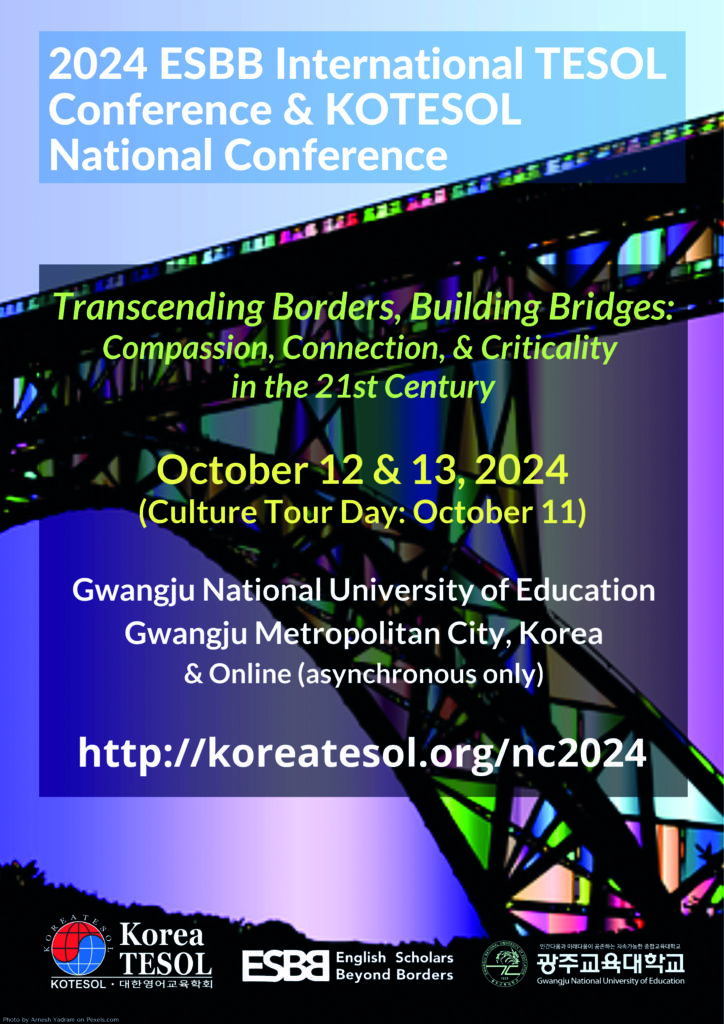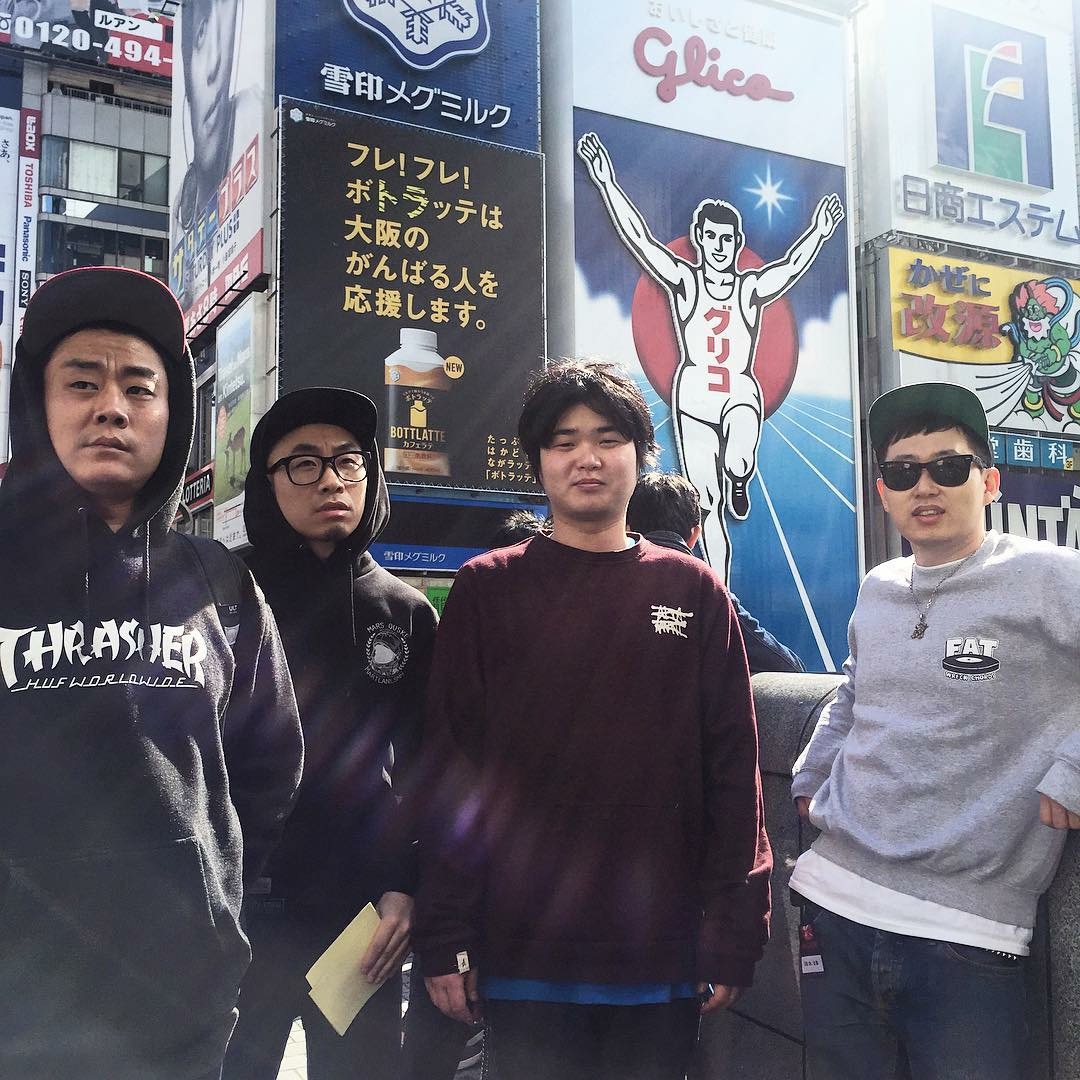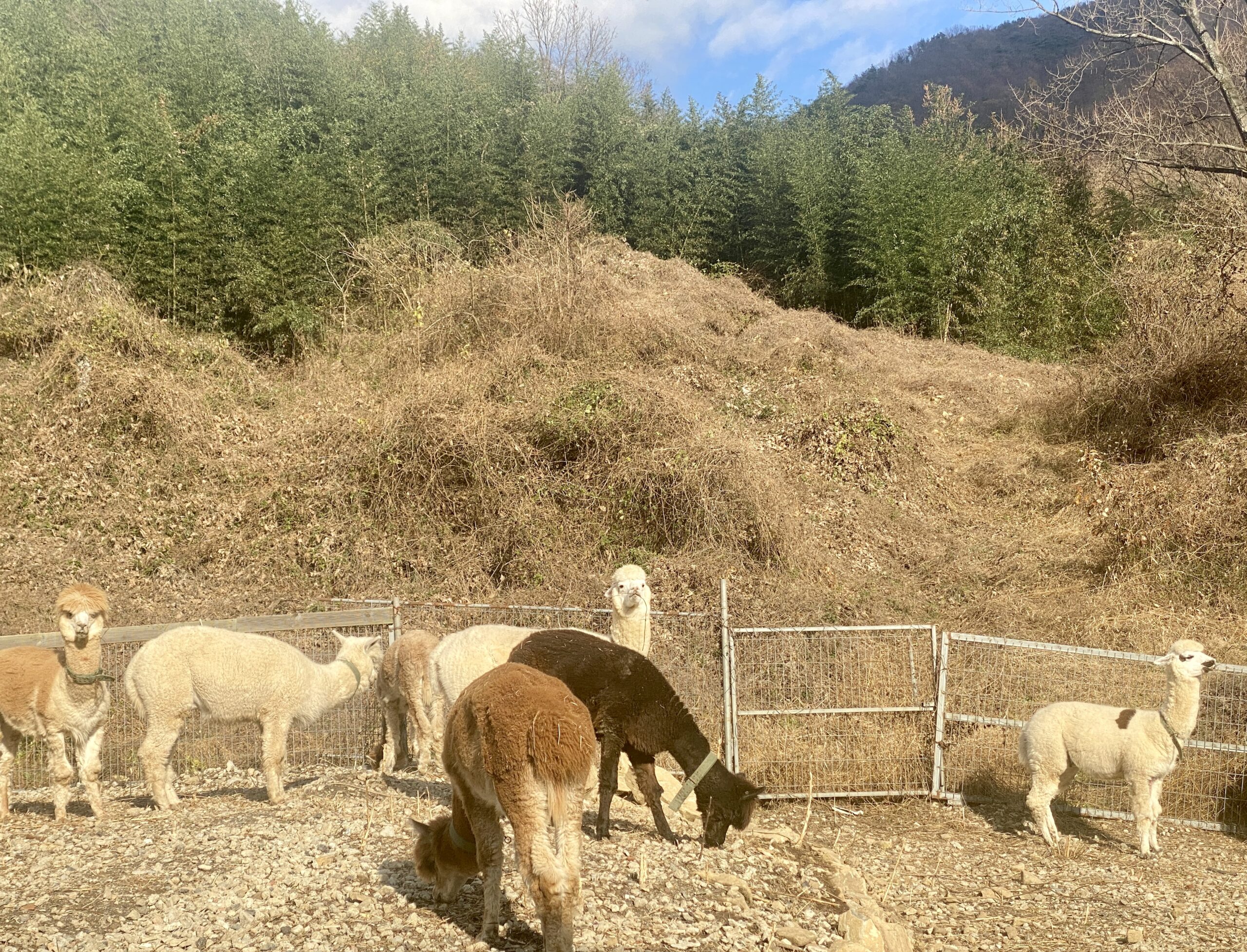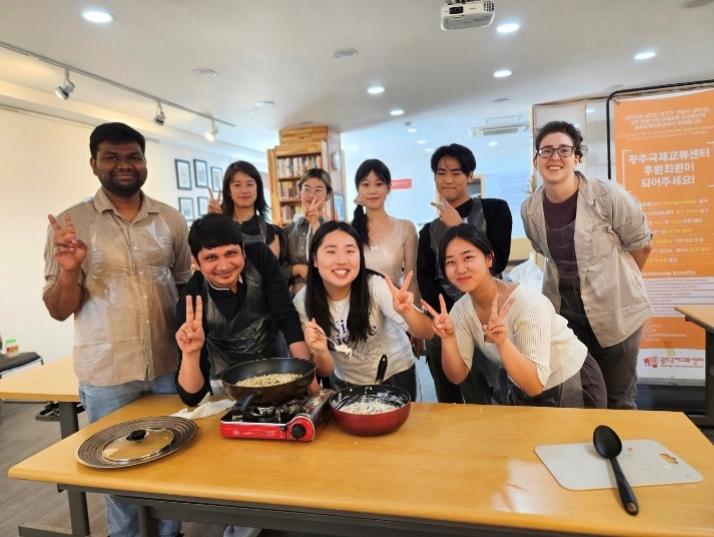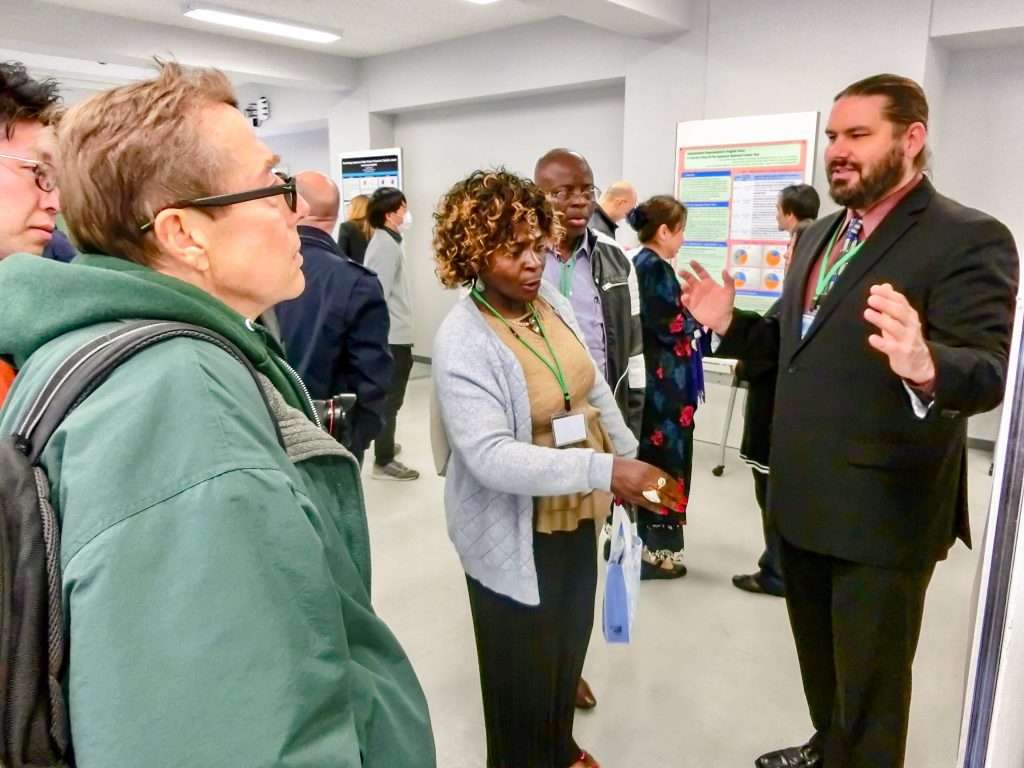International English Teaching Conference Comes to Gwangju
It’s not often that a truly international conference comes to Gwangju. This year, however, Korea TESOL has teamed up with ESBB and the Gwangju-Jeonnam Chapter of KOTESOL to organize an international language teaching conference to be held at the Gwangju National University of Education (GNUE) on October 12–13. Chairing the conference is Lindsay Herron, a professor at GNUE and an officer of the Gwangju-Jeonnam Chapter of KOTESOL. She is also KOTESOL’s national president this year. The Gwangju News caught up with Lindsay recently to bring you this interview. — Ed.
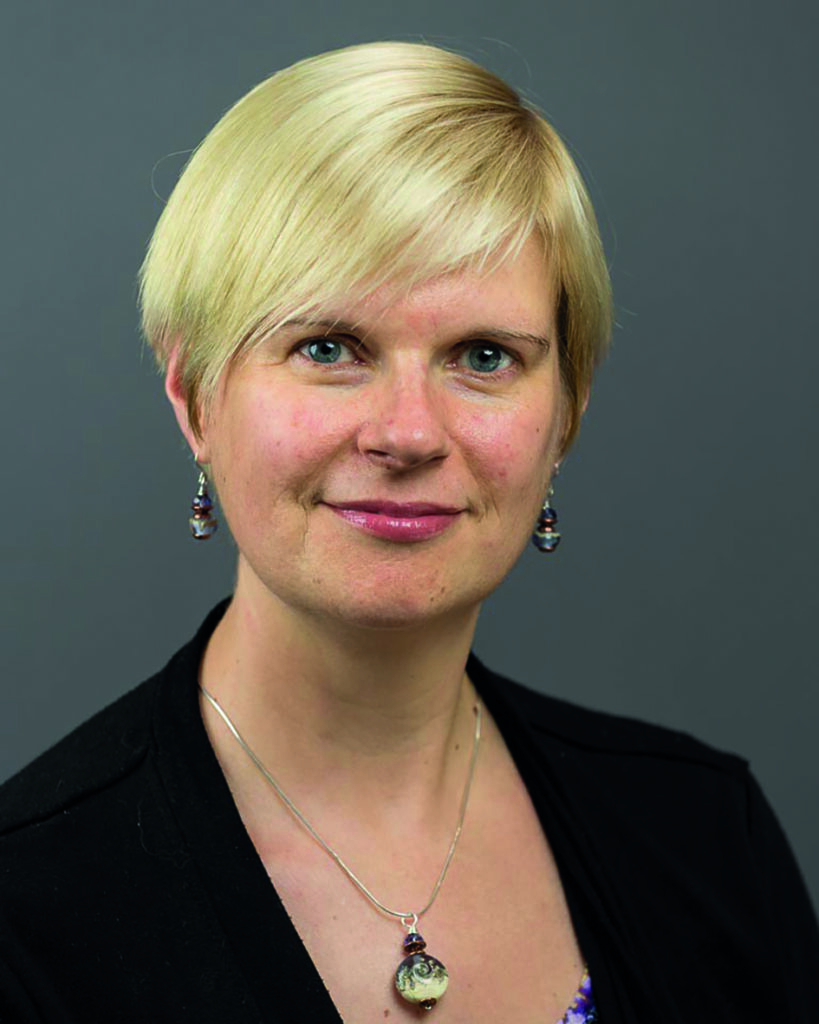
Gwangju News (GN): Hello, Lindsay. Thank you for making time for this interview. You’re the chair for this upcoming joint conference. What prompted you to take on this heavy responsibility of conference chair?
Lindsay: When ESBB first approached me about chairing this event, I leaped at the chance. It seemed like a wonderful opportunity to showcase our lovely city on a global stage, to make international perspectives accessible to local educators for a reasonable price, to increase the global reputation of my university, and to introduce KOTESOL to a new community of scholars. Chairing the conference appealed to me on a personal level, as well; planning conferences is something I’m familiar with and enjoy, so I was excited to take on this new challenge. Actually, I believe this will be KOTESOL’s first national conference in Gwangju and ESBB’s first international event in Korea; it’s a privilege to be at the helm of this truly unique occasion!
GN: Korea TESOL (KOTESOL) is partnering with English Scholars Beyond Borders (ESBB) for this upcoming conference. ESBB was actually off my radar until recently. Could you tell us what kind of organization ESBB is and how KOTESOL came to partner with them for this joint conference?
Lindsay: ESBB describes itself as “a not-for-profit academic circle of international scholars” devoted to facilitating the global exchange of ideas and research. They have a Scopus-indexed, open-access journal, and they collaborate with local organizations worldwide to co-host their annual international conference, bringing together diverse scholars and educators from around the globe.
KOTESOL has partnered with ESBB in smaller ways in the past to support their conferences. We have provided speakers, served as consultants as needed, and promoted the conferences to our members, while our members, in return, enjoyed a discount on conference registration fees. I had also, independently, been in touch with one of ESBB’s leaders about opportunities to collaborate – and when he mentioned ESBB was looking for a host for the 2024 conference, I took it to my university and then the KOTESOL National Council. The rest is history!
GN: The theme of the ESBB-KOTESOL Conference is “Transcending Borders, Building Bridges: Compassion, Connection, and Criticality in the 21st Century” – quite a mouthful, and seemingly quite broad in meaning. Would you explain what message the theme entails?
Lindsay: ESBB, as you might guess, has a particular interest in themes related to crossing borders – as do I! In creating this theme, I wanted to complicate the concepts of barriers and belonging in a broader sense, promoting permeable perspectives and reshaping and redefining boundaries in all their forms. I sought to craft a conference that would encourage participants to consider education beyond the confines of the classroom, beyond traditional notions of research, beyond narrow definitions of what “counts” as learning. Of course, we’ll have sessions presenting more traditional research, but I am particularly excited about the sessions that break free of more customary approaches to challenge convention and explore divergent perspectives. With this theme, I ultimately hope to highlight what I consider foundational to education: questions of what we’re actually doing as teachers and scholars, and how our work makes the world a better place. In an increasingly interconnected – yet often isolating – world, how can educators encourage more empathetic, responsive, critical perspectives and give our students, the global citizens of tomorrow, the tools they need to face the future with flexibility, respect, kindness, and creativity? I’m eager to see how the tendrils of these topics infuse the presentations over the course of the weekend.
GN: More specifically, who are the invited speakers to the conference, and what kinds of talks can we expect them to be presenting?
Lindsay: I’m delighted with the variety of featured speakers and the disparate ways they’re interpreting the theme! The featured speakers representing KOTESOL are Dr. Kevin Kester (Seoul Chapter) from Seoul National University and Jocelyn Wright (Gwangju-Jeonnam Chapter) from Mokpo National University, both respected scholars in the still-nascent area of peace education and peace linguistics. The expertise of ESBB’s featured speakers, meanwhile, spans an impressive range of topics, with sessions touching on everything from student empowerment to a critique of traditional scholarly citation bibliometrics. The founder of ESBB, Dr. Roger Nunn, will be introducing the work of his organization and addressing topics such as intercultural principles and translatability across borders. Finally, Dr. Charles Browne, globally renowned in particular for his work in vocabulary acquisition, will be presenting two sessions, one on integrating critical thinking skills into the English classroom and another focusing on corpus-based activities and resources for vocabulary learning.
GN: It is not often that a truly international ELT conference comes to the Gwangju area. Would you tell us why an EFL teacher living in the Gwangju area should consider giving up their weekend to attend this conference?
Lindsay: This conference is a unique opportunity for local teachers to engage with global perspectives for a reasonable price and with minimal travel required. Our presenters will be visiting from all over the world, including from Hong Kong, Japan, Korea, Oman, the Philippines, South Africa, Taiwan, the United Arab Emirates, the United States, Vietnam, and more. Commensurate with this variety of presenters is an impressive spread of session topics. Besides the featured sessions I’ve already mentioned, the conference will include interactive workshops for teachers of students of all ages; research presentations to help practitioners make informed pedagogical decisions; and a technology-focused strand offering insights into, among other things, generative AI in the language classroom.
This will also be an inimitable chance to make connections of all kinds – not just in terms of professional inspiration but also on a personal level! We’re incorporating multiple social opportunities into the weekend, so participants will have many chances to make new friends or team up with international collaborators.
GN: How does one go about registering for this conference, and how should attendees prepare for it?
Lindsay: Pre-registration will be open through September 20, just after Chuseok. To get the best price and to reserve both lunch and a printed program booklet, definitely register by that date on the KOTESOL website (http://koreatesol.org/nc2024). You’ll need to log in or create an online profile in order to view the registration form, but the procedure is fairly simple, and the payment instructions are on the last page of the registration process. If you choose not to pre-register by September 20, you can register onsite on October 12 or 13, but the price will be a bit higher; it’ll take a little longer to get through the registration process upon arrival; and we’re not able to guarantee the availability of either lunch or a program booklet.
For all attendees, I’d recommend taking a look at the presentation offerings in advance to plan your time. Descriptions of each session, including the abstracts and the presenters’ biographical profiles, are currently available, and a complete timetable and detailed PDF program book will be available by mid-September. Asynchronous digital sessions (pre-recorded videos) will also be available until the end of October – but those are free and open to all, so you don’t have to register to watch them! If you only watch the online videos, though, we can’t provide a participation certificate; for all in-person attendees, in contrast, digital certificates will be available upon request.
GN: What have I missed… ? Ah! Other than a plethora of ELT-related presentation sessions, what else might be available at the conference that would be of interest to the attendee?
Lindsay: We’ve got a few things in the works right now that aren’t quite set as I write this, including an optional group dinner on Saturday night; a “Highlights of Jeollanam-do” tour on Friday, thanks to our partners at the Gwangju Universal Culture Center (UCC); booths for participants to browse; and opportunities for students to showcase their own talents, insights, and perspectives.
Actually, this is where I’d like to open it up to the wider Gwangju community! Besides attending the conference, we welcome local participation in a variety of ways. First, if you know any youths who would like to get involved – for example, by teaching a skill or craft at a booth, discussing their school life as part of a panel or alone, busking during conference breaks, or volunteering as staff – please let me know! In addition, KOTESOL members, Gwangju citizens (especially artisans!), and nonprofit organizations can apply for discounted (or free) display space, and we always welcome volunteers. If you or someone you know would like to get involved behind the scenes and make some international connections, please reach out to me: natconfchair2024@koreatesol.org. I’m confident it will be a fun and rewarding experience for everyone involved!
GN: Thank you, Lindsay, for shedding so much light on what to expect from the upcoming KOTESOL-ESBB conference. I’m sure that many in the TESOL field here in the Gwangju area will be interested in attending.
